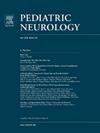胎儿-新生儿神经病学中的困难对话:全国儿童神经病学住院医师的教育经验和需求调查
IF 3.2
3区 医学
Q2 CLINICAL NEUROLOGY
引用次数: 0
摘要
背景胎儿新生儿神经病学(FNN)是儿童神经病学中一个不断发展的亚专业,它经常涉及到与家属就新的神经病学诊断和预后进行艰难的对话。我们评估了儿童神经病学住院医师在 FNN 困难对话方面的教育经验和需求。方法我们对儿童神经病学住院医师在神经病学培训中的教育经验进行了一项描述性调查研究。我们通过电子邮件向美国所有儿童神经病学项目的项目主任分发了一份匿名 RedCap 调查表,供住院医师自愿填写。几乎所有住院医师(92%)在学年中至少有一周时间在新生儿重症监护室提供咨询。大约一半的人在六个月内至少参加过一次胎儿神经病学会诊。大多数受访者(87%)曾参与过胎儿神经病学的困难对话,困难对话的定义是传递严重消息或讨论神经病学预后,68%的受访者在六个月内至少主持过一次困难对话。与胎儿神经病学相比,受访者更倾向于在新生儿神经病学中提供诊断和预后。少数受访者(32%)接受过专门针对新生儿神经病学的沟通培训,几乎所有受访者(96%)都希望提高自己在新生儿神经病学中进行困难对话的能力。大多数住院医师没有接受过专门针对 FNN 的沟通培训,他们对提高在 FNN 中进行困难对话的能力很感兴趣。本文章由计算机程序翻译,如有差异,请以英文原文为准。
Difficult Conversations in Fetal-Neonatal Neurology: National Survey of Educational Experiences and Needs of Child Neurology Residents
Background
Fetal-neonatal neurology (FNN) is a growing subspecialty within child neurology that often involves difficult conversations with families regarding new neurological diagnoses and prognoses. We assessed child neurology residents’ educational experiences and needs regarding difficult conversations in FNN.
Methods
We performed a descriptive survey-based study of the educational experiences of child neurology residents in their neurology training. An anonymous RedCap survey was distributed by e-mail to program directors of all US child neurology programs for distribution to residents for optional, voluntary completion.
Results
Forty-seven child neurology residents in training programs in 12 states participated. Nearly all (92%) spent at least one week during the academic year providing consultations in the neonatal intensive care unit. About half participated in at least one fetal neurology consultation over the course of six months. A majority of respondents (87%) had been part of a difficult conversation in FNN, defined as delivering serious news or discussing neurological prognosis, and 68% led at least one difficult conversation over the course of six months. Respondents were more often comfortable delivering diagnoses and prognoses in neonatal neurology than in fetal neurology. A minority (32%) had communication training specific to FNN, and almost all (96%) were interested in improving their ability to conduct difficult conversations in FNN.
Conclusions
Child neurology residents were variably exposed to FNN and often actively participated in difficult conversations with families. Most residents had not had communication training specific to FNN and were interested in improving their ability to conduct difficult conversations in FNN.
求助全文
通过发布文献求助,成功后即可免费获取论文全文。
去求助
来源期刊

Pediatric neurology
医学-临床神经学
CiteScore
4.80
自引率
2.60%
发文量
176
审稿时长
78 days
期刊介绍:
Pediatric Neurology publishes timely peer-reviewed clinical and research articles covering all aspects of the developing nervous system.
Pediatric Neurology features up-to-the-minute publication of the latest advances in the diagnosis, management, and treatment of pediatric neurologic disorders. The journal''s editor, E. Steve Roach, in conjunction with the team of Associate Editors, heads an internationally recognized editorial board, ensuring the most authoritative and extensive coverage of the field. Among the topics covered are: epilepsy, mitochondrial diseases, congenital malformations, chromosomopathies, peripheral neuropathies, perinatal and childhood stroke, cerebral palsy, as well as other diseases affecting the developing nervous system.
 求助内容:
求助内容: 应助结果提醒方式:
应助结果提醒方式:


